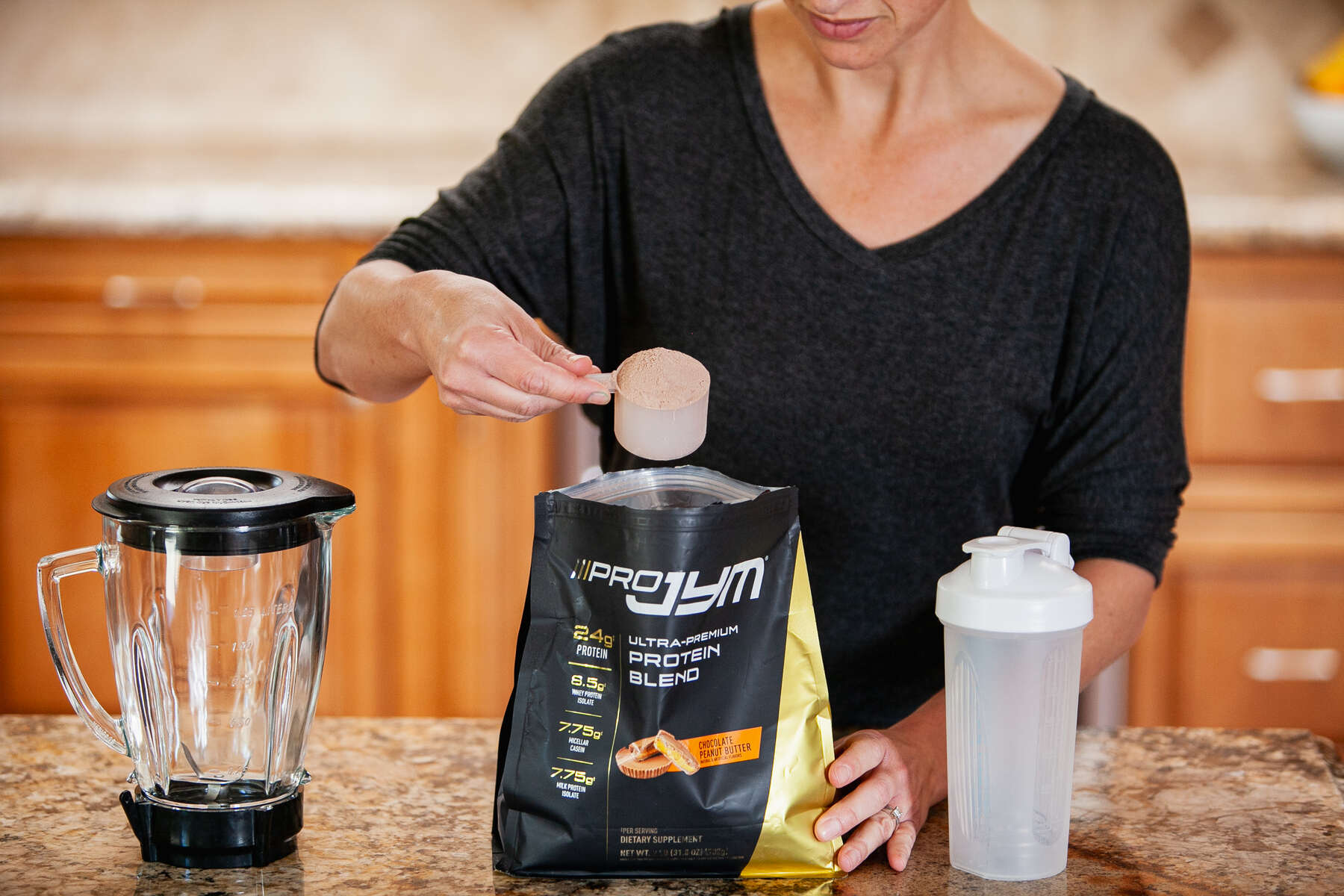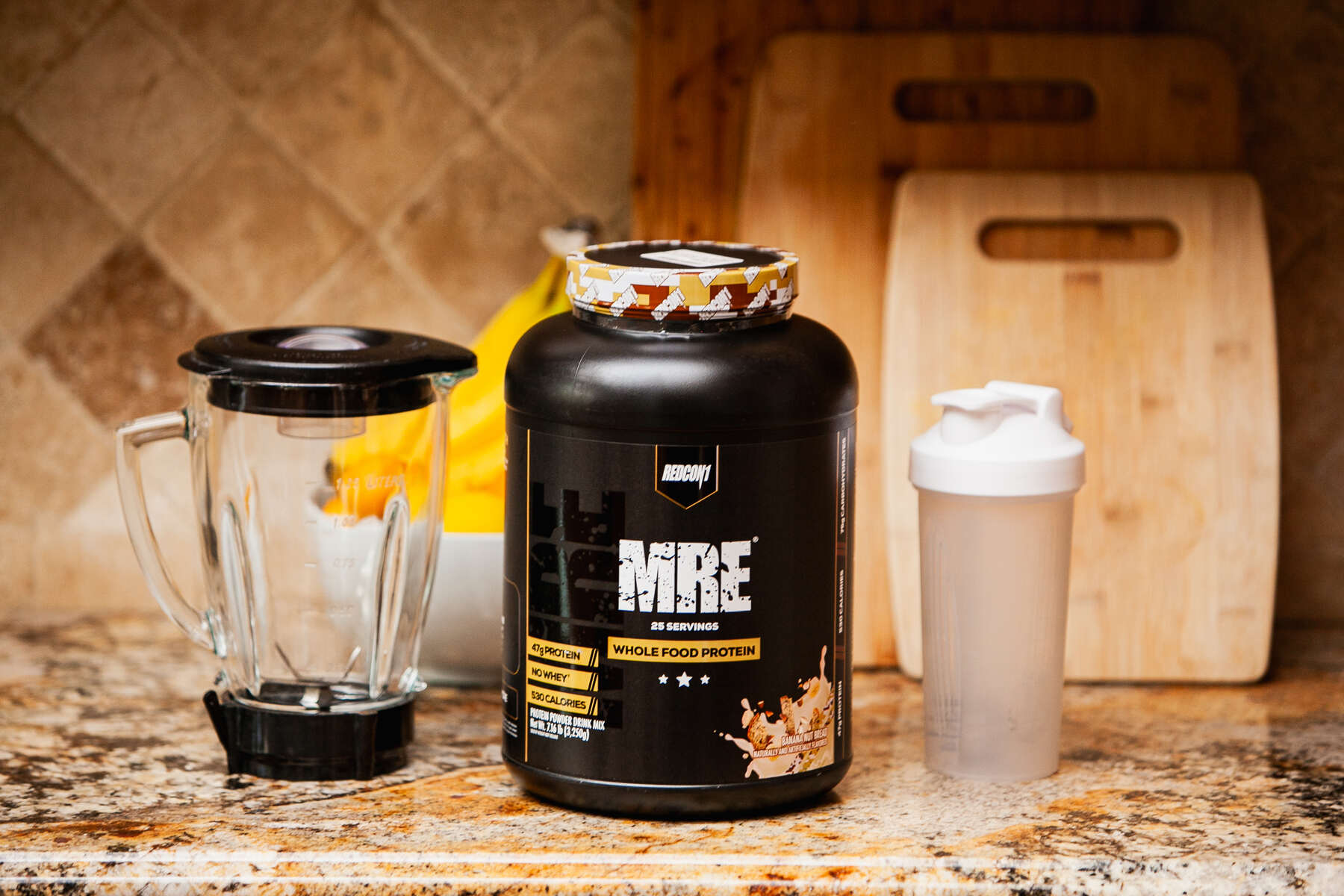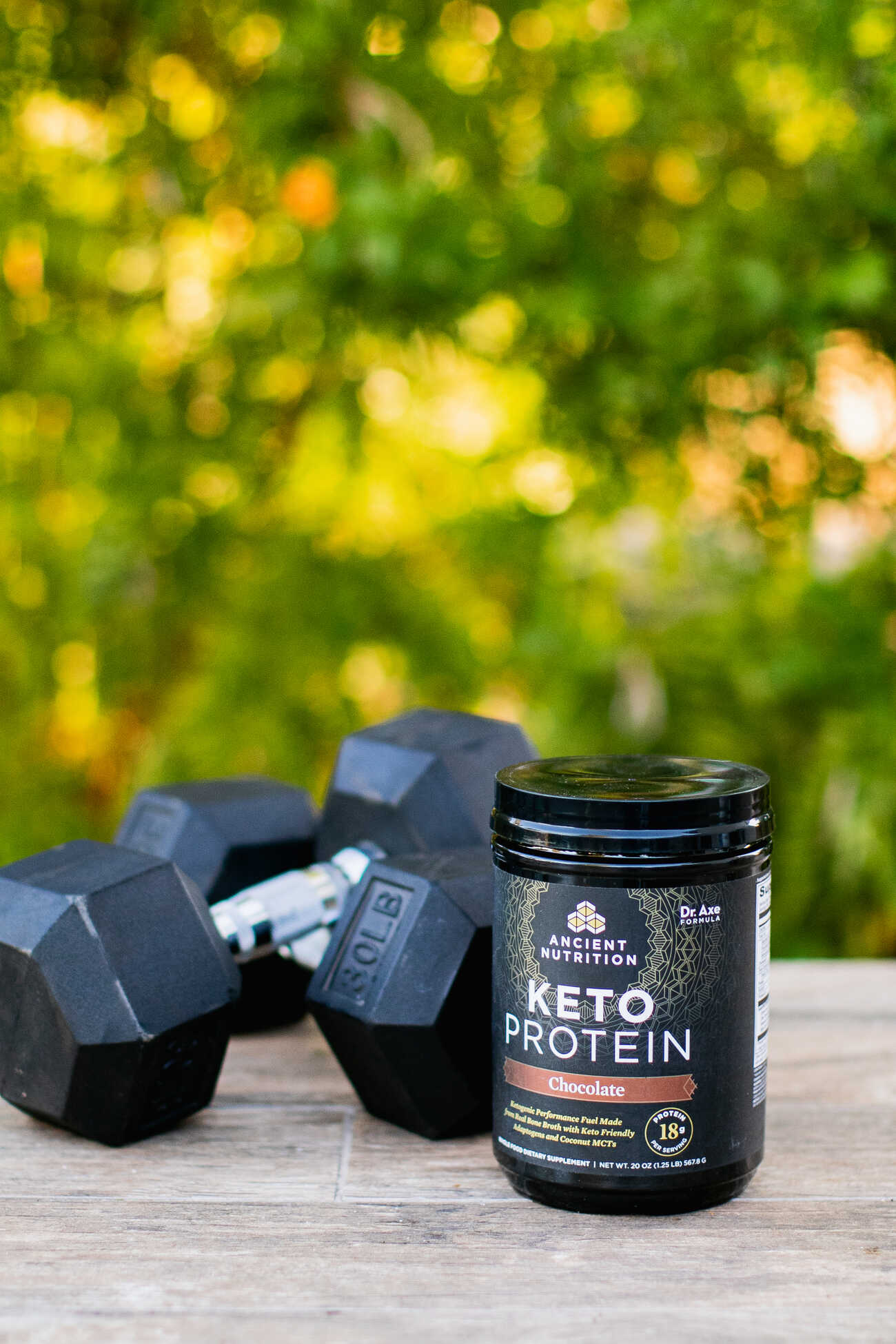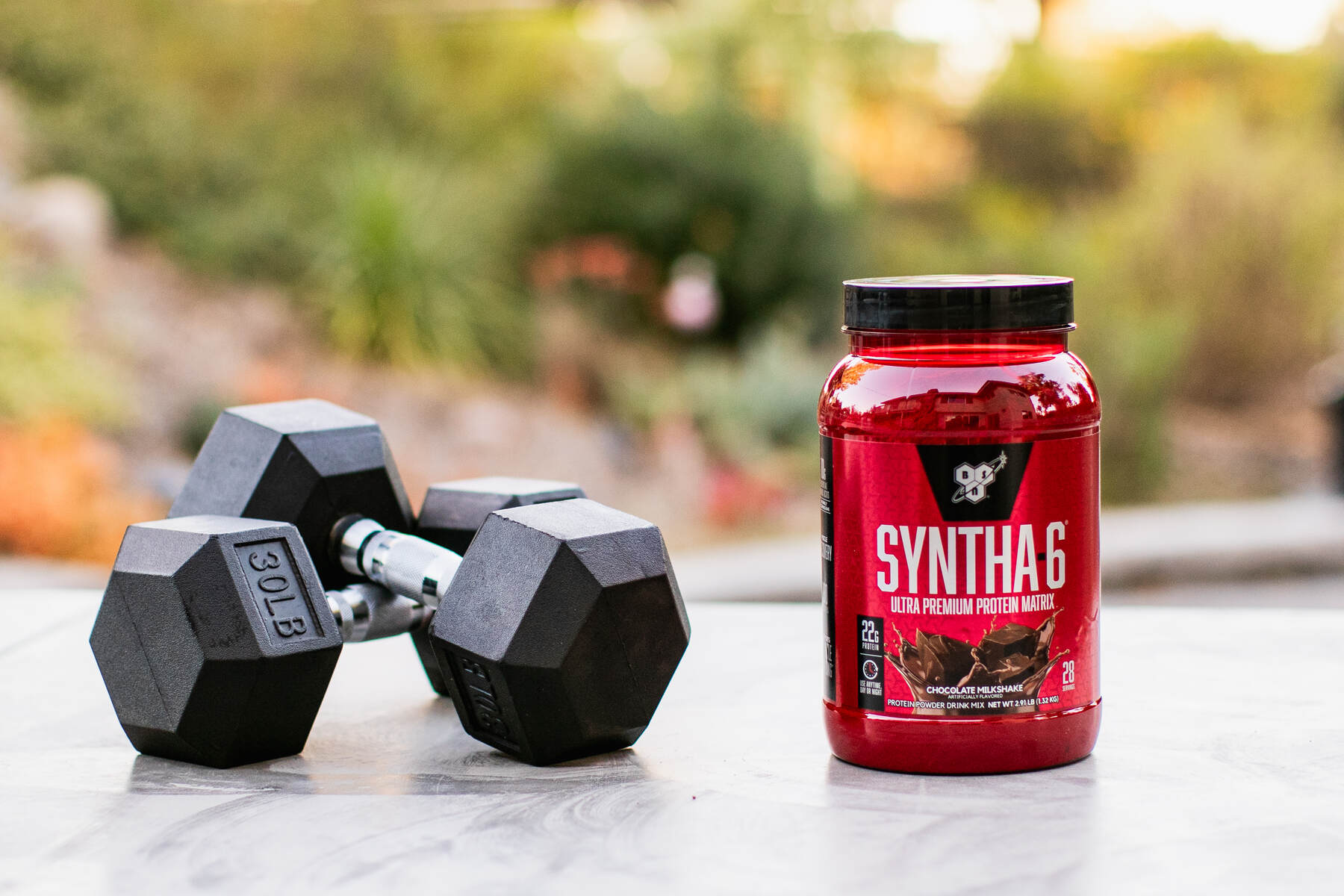Workout supplements can leave you wondering what you are putting in your body and what effects they will have.
Gymgoers commonly use pre-workouts and protein powder; the question is, what do they do?
As a fitness trainer with years of experience, I can help answer this question and reveal whether pre-workout and protein powder are the same and why you should consider both to see the best results.
Are Pre Workout and Protein Powder the Same?
No, pre-workout and protein powder are not the same. Pre-workout and protein powders are both supplements that can be taken to enhance your training, albeit differently.
A pre-workout boosts energy, increases focus, and improves muscular endurance. In contrast, protein powder is designed to help build and maintain muscle mass and aid recovery post-workout.

Why Take a Pre-workout?
There are a few reasons why you may want to use a pre-workout. However, the main reason to use one would be to improve the overall quality of your workouts.
They are made using a blend of ingredients shown to help push you further during exercise.
Pros and Cons of Pre-workout
Some of the benefits of using a pre-workout include:
- A boost of energy
- Improved athletic ability and muscular endurance
- An increase in strength and power output
- Enhanced blood flow and pumps
- Increased alertness and mental focus
Despite their benefits, there are some drawbacks to using pre-workouts:
- Not suitable for complete beginners
- Risk of side effects due to stimulants used
- Ingredients like beta-alanine can cause a tingling sensation that can make your workouts uncomfortable
- Sometimes unproven ingredients are added that offer little benefit
Ingredients Found in Pre-workout
The most common ingredient found in pre-workouts is caffeine, a stimulant that will cause an energy increase and an increase in alertness.
Other ingredients like beta-alanine can help you work out longer without fatigue.
How Long Does Pre-workout Last in Your Body?
The duration of pre-workout will depend entirely on what ingredients have been used, along with their dosages. Certain ingredients, such as caffeine, are absorbed quickly, while others will last longer.
Typically they will last around two to four hours before they are broken down.
Why Take a Protein Shake?
If you want to build muscle mass, you will know just how important protein is for helping you achieve this goal. Protein can help give your body the nutrients it needs to repair those damaged muscle fibers after an intense workout.
The problem is that more than consuming enough protein through diet alone can be challenging. This is where a protein shake can help, as they offer a convenient way to increase your protein intake.
Pros and Cons of Protein Powder
The benefits of protein powder include:
- A convenient method of increasing protein intake
- It helps to build muscle
- It can be used as part of a well-balanced diet

There are a few issues you should consider before using a protein powder:
- Won’t offer any energy boost
- It may cause gastrointestinal problems
Ingredients Found in Protein Powder
The protein found in plants, eggs, or milk is turned into a powder that can be added to water as a convenient way to boost your protein intake.
Protein powder manufacturers often add sweeteners, thickeners, and vegetable oils to help enhance the flavor and texture of the powder.
How Long Does Protein Powder Last in Your Body?
Your body can break down protein at 10 grams per hour. That means a 20-gram scoop of protein powder should be broken down, and the amino acids absorbed within two to four hours of consumption.
Pre-workout vs. Protein Shake
Let’s examine the characteristics of pre-workout and protein shakes to understand their differences.
Processing of Protein Powder vs. Pre Workout
Protein powder is processed differently depending on whether the products are from an animal or plant.
If the protein comes from an animal, then the whey is obtained by adding enzymes to milk. This helps to separate the whey from the casein. The whey is then filtered and dried to form a powder.
Plant-based protein powder will need the outer shell removed and then ground into a fine powder. Again, enzymes are added, which helps to separate the protein from the starch. The powder is then created using various methods depending on the specific source.
When creating a pre-workout, the manufacturer will use various methods to develop powdered forms of its ingredients; these are then combined in the appropriate amounts.
Both protein powders and pre-workouts have natural or artificial flavors added to their formulas too.
Average Macros per Serving
Typically an average scoop of protein powder will provide you with 20-25 grams of protein, with 0-5 grams of fat and 0-10 grams of carbohydrates. Each serving will likely be 100-160 calories.
Pre-workout, conversely, is usually fat-free and mostly free of carbs too. They likely won’t contain any protein, although they may contain BCAAs or tyrosine, with both containing some calories. Although the number of calories may be small, they are worth noting if you are on a calorie-controlled diet.
Price Range
The price range of pre-workouts and protein powder will vary depending on the brand and the type of ingredients it contains.

Typically a serving of protein powder will cost $1 to $2, with whey protein isolate being the more expensive variety due to the additional filtration process and the higher quality protein available.
Pre-workout is cheaper, with a single serving likely to cost as little as $0.60.
Can Protein Powder Be Used as Pre-workout?
You can use protein powder as a pre-workout, although you won’t experience any energy-boosting benefits.
Consuming a protein shake before exercise will help:
- Fuel your workout
- Minimize muscle breakdown
- Feel satiated
- Boost muscle adaptation
Can You Mix Pre-workout With Protein Powder?
Although it may seem like a good idea to mix pre-workout and protein powder, I do not recommend it.
This is because you should not mix the ingredients, as you will have no idea what the reaction will be.
It would be better to consume the pre-workout before exercise and then the protein shake after you have completed your workout.
What is the Best Time to Take Pre-workouts and Protein Shakes?
If you want the best results, consider taking the pre-workout 30-45 minutes before you exercise.
Protein powder can be taken before or after a workout. Some trainers say you should consume the protein shake within a 30-minute anabolic window to see the best results. However, research has proven that this anabolic window is much longer than 30 minutes.
How to Choose a Good Pre-workout or Protein Powder?
The advice would be the same whether you are looking for a quality pre-workout of protein powder.
Before you even start looking at supplements, you must decide what your goals are and what you need to do to achieve them. This will help give you a better idea of the type of product to choose.
Once this has been decided, you will need to look closely at each potential supplement’s ingredients, the dosage, whether there are any customer reviews, the price range, and how easy the supplement is to use. Once you have all this information, you can make an informed decision.
Should You Buy Pre-workout or Protein Powder?
The truth is that it depends on your goals and what you want to achieve. A pre-workout will be recommended if you want to boost your training to increase energy levels and focus.
A protein shake will be a good idea to build muscle and aid recovery.
Consider adding both to your supplement stack for the best results.

Related Questions
Is Protein Shake Enough for Pre-workout?
A protein shake can be used as a pre-workout as it will give you a boost of protein that offers a range of benefits. If you expect an energy boost, you will be disappointed, however.
Do You Need Pre-workout and Whey Protein?
No, you do not need both. However, depending on your goals, consider both. The pre-workout can boost your energy, while the additional protein can aid your recovery.
Is Pre-workout or Protein Powder Better for Weight Loss?
Neither supplement is designed specifically for weight loss. However, protein powder would be the better option as the extra protein can aid satiety.
Conclusion
Pre-workout and protein powder are different; one is designed to help you get the most out of your workout, while the other is designed to increase your protein intake.
Regardless, consider supplementing with both to see the best results.